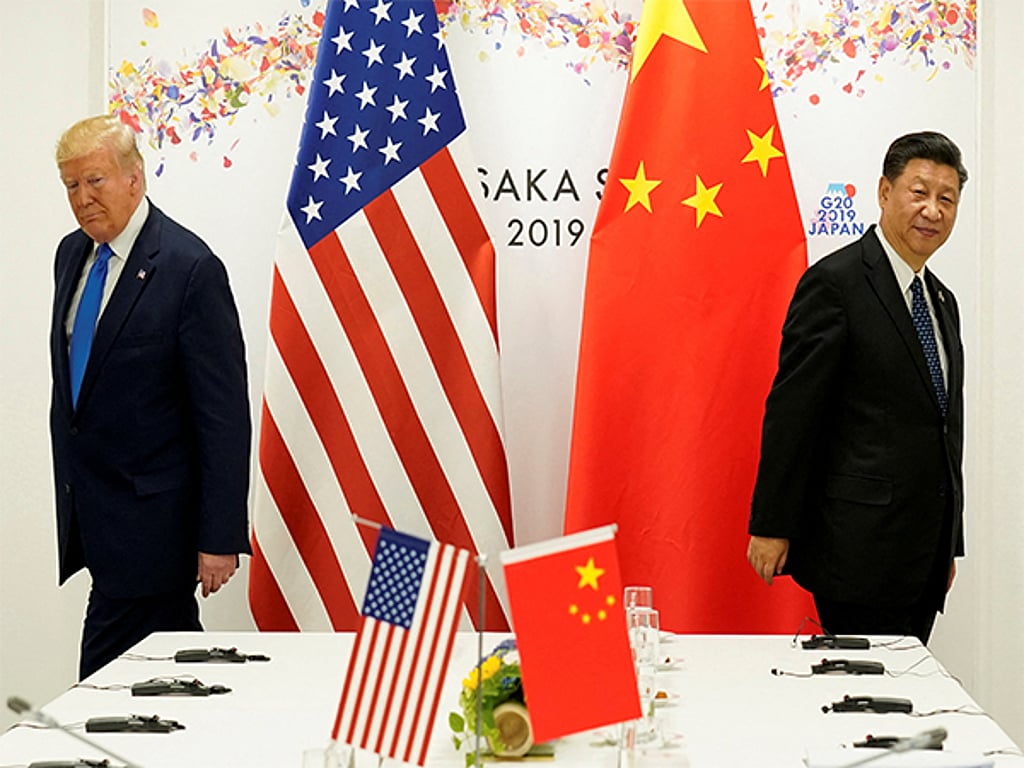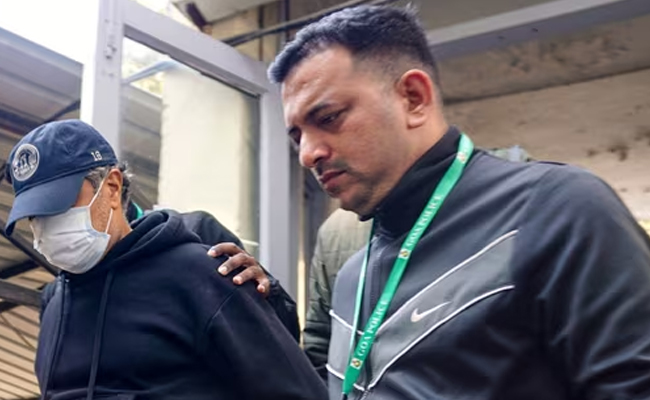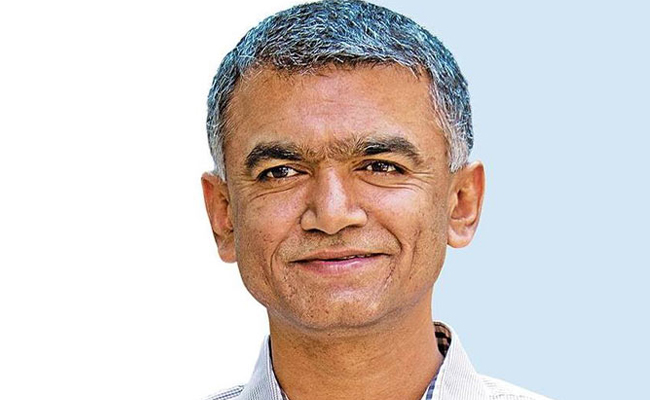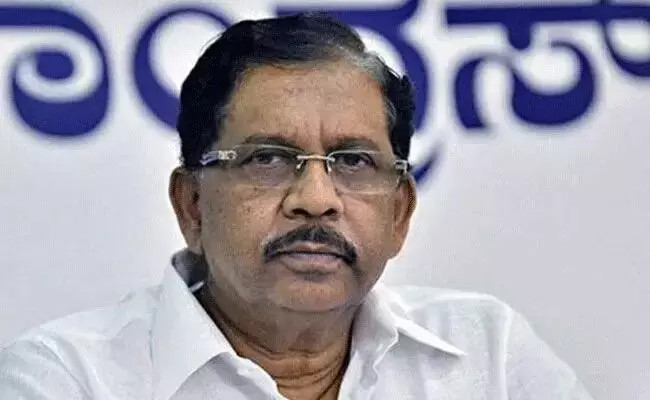Bangkok (AP): China announced Friday that it will impose a 34 per cent tax on all US imports next week, part of a flurry of retaliatory measures to US President Donald Trump's new tariffs that delivered the strongest response yet from Beijing to the American leader's trade war.
The tariffs taking effect Thursday match the rate that Trump this week ordered imposed on Chinese products flowing into the United States. In February and March, Trump slapped two rounds of 10 per cent tariffs on Chinese goods, citing allegations of Beijing's role in the fentanyl crisis.
The US stock market plunged Friday following China's retaliatory moves. They include more export controls on rare earth minerals, which are critical for various technologies, and a lawsuit at the World Trade Organization over what Trump has dubbed reciprocal tariffs.
China also suspended imports of sorghum, poultry and bonemeal from six US companies, added 27 firms to lists of companies facing trade restrictions, and launched an anti-monopoly investigation into DuPont China Group Co., a subsidiary of the multinational chemical giant.
Trump posted Friday on Truth Social: “CHINA PLAYED IT WRONG, THEY PANICKED - THE ONE THING THEY CANNOT AFFORD TO DO.”
Yet he also indicated he could still negotiate with China on the sale of TikTok even after Beijing pressed pause on a deal following the new tariffs. On Friday, he extended the deadline for the social media app to divest from its Chinese parent company, per a federal law, for another 75 days.
“We hope to continue working in Good Faith with China, who I understand are not very happy about our Reciprocal Tariffs,” Trump posted on his social media site. “We look forward to working with TikTok and China to close the Deal.”
China's response to tariffs grows tougher
Beijing's response is “notably less restrained” than during the recent two rounds of 10 per cent tariffs on Chinese goods, and that “likely reflects the Chinese leadership's diminished hopes for a trade deal with the US, at least in the short term,” wrote Gabriel Wildau, managing director of the consultancy Teneo.
He said Beijing's tough response could trigger further escalation, with no sign that Chinese President Xi Jinping and Trump might meet soon or get on the phone to ease the tensions.
If China's previous responses were scalpels, this time it drew a sword, said Craig Singleton, senior China fellow at the Foundation for Defense of Democracies, a Washington-based think tank.
“China's new tariffs stop short of full-blown trade war, but they mark a clear escalation — matching Trump blow-for-blow and signaling that Xi Jinping won't sit back under pressure,” Singleton said.
But the escalation also is squeezing out space for diplomacy, he warned.
“The longer this drags, the harder it becomes for either side to deescalate without losing face,” Singleton said.
What China's retaliatory measures look like
In Beijing, the Commerce Ministry said it would impose more export controls on rare earths — materials used in high-tech products such as computer chips and electric vehicle batteries. Included in the list was samarium and its compounds, which are used in aerospace manufacturing and the defense sector. Another element called gadolinium is used in MRI scans.
China's customs administration said it had suspended imports from two US poultry businesses after officials detected furazolidone, a drug banned in China, in shipments from those companies. It said it found high levels of mold in the sorghum and found salmonella in the bonemeal feeds from four other US companies.
The Chinese government said it also added 16 US companies to the export control list, subjecting them to an export ban of dual-use products. Among them are High Point Aerotechnologies, a defense tech company, and Universal Logistics Holding, a publicly traded transportation and logistics company.
An additional 11 US companies were added to the unreliable entity list, including the American drone makers Skydio and BRINC Drones, banning them from import and export activities as well as making new investments in China.
In announcing its WTO lawsuit, the Commerce Ministry said Trump's new tariffs move “seriously violates WTO rules, seriously damages the legitimate rights and interests of WTO members, and seriously undermines the rules-based multilateral trading system and international economic and trade order.”
The ministry called the tariffs “a typical unilateral bullying practice that endangers the stability of the global economic and trade order.”
Beijing's previous tariff moves
In February, in response to Trump's first 10 per cent tariff, China announced a 15 per cent tariff on imports of coal and liquefied natural gas products from the US It separately added a 10 per cent tariff on crude oil, agricultural machinery and large-engine cars.
A month later, Beijing responded to Trump's second round with additional tariffs of up to 15 per cent on imports of key US farm products, including chicken, pork, soy and beef. Experts then said Beijing exercised restraint, leaving room for negotiations with Washington.
By now, dozens of US companies are subject to controls on trade and investment, while many more Chinese companies face similar limits on dealings with US firms.
While friction on the trade front has been heating up, the two sides have maintained military dialogue.
US and Chinese military officials met this week for the first time Trump took office in January to share concerns about military safety on the seas. The talks held Wednesday and Thursday in Shanghai were aimed at minimizing the risk of trouble, both sides said.
Let the Truth be known. If you read VB and like VB, please be a VB Supporter and Help us deliver the Truth to one and all.
Bajpe: Police have arrested a youth for allegedly posting derogatory and defamatory content against the Bajpe police on social media.
The arrested accused has been identified as Abhishek M. (23), a resident of Katipalla, Surathkal.
According to the police, Abhishek posted a photograph of Bajpe Nisarga Hotel on his Instagram account mr_a_titude_22, alleging that accused persons in a murder case under the jurisdiction of the Bajpe police station were being treated “like royalty” by the police and were being served beef meals from the hotel every day. In his post, he further accused the police of colluding with criminals and misusing their authority, stating that public trust in the police was being betrayed.
Following which, the Bajpe police registered a case and arrested the accused.
Police records reveal that Abhishek is already facing multiple criminal cases. A case of murder, attempt to murder, assault and robbery has been registered against him at the Surathkal police station. At the same time, a robbery case has also been registered at the Kaup police station.
After his arrest, Abhishek was handed over to the custody of the CEN police for further investigation. He was later produced before a court, police said.





